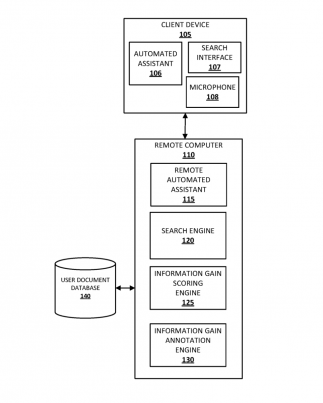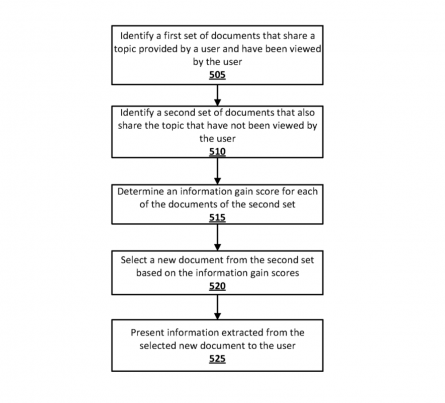
Information Gain SEO
Correlating content is all the rage in the SEO communities.
But is copycat content really going to improve your rankings in the SERPs?
If you are using tools like Surfer SEO are you just following their true density?
Information gain scores are additional data one source brings compared to other sources on the same dataset. Content with higher info gain scores ranks higher in the SERP than pages with lower information gain scores.
There’s a good chance you’re taking the SurferSEO recommendations too literally and not thinking about the user.
I want to make something very clear and I love SurferSEO as a tool – but in the wrong hands, it could harm your on-page optimisation.
Contents
What is Information Gain?
The information gain score is additional information included by a page beyond the information contained in other pages already presented to the user.
Information Gain is comparing the entropy of the dataset before and after a transformation.
Transforming a dataset is often used in training decision trees.
For SEO purposes the information gain scores are what additional value your content brings to search engines they get to learn.
Information gain scores indicate how much more information one source may bring to a person who has seen other sources on and about the same topic
The higher the information gain score compared to the existing ranking results the better chance of improving your positions to #1 in the SERPs.
How We Train Content Writers For Higher Information Gain Scores?
From lots of analysis, testing and personal training here is how we train our SEO content writers to achieve higher information gain scores:
- Play GUESS WHO board game to understand “How” you funnel your decisions (Google uses similar traits)
- Educate on what differentiator keywords are needed using TF:IDF research
- Train our writers to be the best research specialists
Some of the best writers in your content team are the individuals who can use Google the best.
Having the ability and know-how to research and use Google search parameters to find the information gain topics is what improves content scores.
Check out our video on Why Guess Who is the Best Board Game for Learning How to Rank Content and find the Hyper Specific Data to achieve higher info gain scores:
Information Gain Score Google Patent
This Information Gain Score patent application can be found at:
- Contextual Estimation of Link Information Gain
- Publication Number: WO2020081082
- Publication Date: April 23, 2020
- International Filing Date: October 18, 2018
- International Application Number: PCT/US2018/056483
- Applicants: GOOGLE LLC
- Inventors: Victor Carbune, Pedro Gonnet Anders
- Google Patent Title: (EN) CONTEXTUAL ESTIMATION OF LINK INFORMATION GAIN
Google Patent Abstracts
Here is the English Google Patent abstract from the CONTEXTUAL ESTIMATION OF LINK INFORMATION GAIN:
Techniques are described herein for determining an information gain score for one or more documents of interest to the user and present information from the documents based on the information gain score. An information gain score for a given document is indicative of additional information that is included in the document beyond the information contained in documents that were previously viewed by the user. In some implementations, the information gain score may be determined for one or more documents by applying data from the documents based across a machine learning model to generate an information gain score. Based on the information gain scores of a set of documents, the documents can be provided to the user in a manner that reflects the likely information gain that can be attained by the user if the user were to view the documents.
The Google Patent through the machine learning model is a huge step forward to identifying they cannot afford users to be listed with a set of results identical to each other in the SERPs.
Why Google Introduced Information Gain Scores?
Google introduced the Information Gain Score Patent because have real issues with the SEO community using correlation tools.
Over the past few years, the buzz around the SEO groups has been to correlate your content to what is currently ranking.
But just think about what problems that pose for Google?
Here is an abstract from the Information Gain Google Patent:
“the request or interest of the user, the user may have less interest in viewing a second document after already viewing the same or similar information in a first document or set of documents.”
If everyone copies the #1 ranking website in the SERPs and the user does not have a positive experience with this result – what then?
They click onto the #2 result and it’s copied the #1 ranked website – so again the user is not happy and has a negative experience.
The copycat SEO techniques are good to get you to a position of getting yourself a level playing field with the currently ranked websites.
BUT then you need to find ways to improve your Information Gain Scores.
How to Improve Information Gain Scores?
Here are several ways to improve information gain scores for your SEO efforts.
Use Differentiator Keywords
Differentiator Keywords is a unique aspect that sets your content apart from competing websites.
Algorithmically, how can Google even determine which pages are the best of a given topic?
Who is the expert?
There form two parts to ranking your content:
- Match what is ranking existing with correlation tools (AKA REFLECT THE SERP)
- Then add in the differentiator keywords to earn extra Information Gain Scores (AKA SET THE SERP)
The use of differentiator keywords forms the basis for how you establish a competitive advantage with Information Gain Scores to your competition.
Correlation is the differentiator keywords arch enemy
Trying to find those entities which can support your parent topic is what gives the confidence score to Google on the theme.
These theme entities you can find with high salience scores in Natural Language Processing can be the make or break to your content ranking higher.
Analyse Content Gaps in The Competition
Finding content gaps your competition are not covering is critical to ranking higher in Google.
Manually analysing the top 10 search results in the SERPs for your desired keywords can be time-consuming.
You need to record all the topics covered by each website and apply conditional formatting to make the gaps easy to digest.
Our SEO Content Writers recently started using the MarketMuse Compete Application and absolutely love it because saves hours of time.
Gap analysis is made easy with the MarketMuse Compete Application where we can cover the topic comprehensively with related subtopics we have missed.
Find Questions Your Users Are Searching
Answering questions your users are asking online shows you as the expert in your niche.
Satisfying the search intent by adding questions to your content and directly answering these is a surefire way to extra information gain scores.
Your audience is desperately seeking answers to their questions. Behind every search is a question. There may be more than one. Your ability to answer those questions within your article influences the success of your content marketing
But how do you find the questions your users are searching for? Here are some ways to find the questions:
- Search Google for your keywords and see what questions show in the People Also Ask (little hack, if the PAA does not show up, is to add “What is {insert keyphrase}” and this will trigger the People Also Ask)
- Niche relavant forums
- Quora
- MarketMuse Questions Application
- Answer The Public
Adding FAQ schema questions and answers to your web pages also have the advantages of a larger SERP feature which attracts more clicks.
Adding questions as part of your content expansion techniques is our #1 hack to ranking pages for hundreds more related keywords.
Taking the question and answer approach can quickly build site authority. Taking the extra effort to answer questions in your content sets you up for the time when voice search finally catches on. Voice search has a high frequency of question-oriented queries. Having content prepared in this manner should make voice search optimization easier, should this method of search become popular
Answer the questions concisely and the search engine will love you for it and this is the best chances of stealing featured snippets.
Expand Semantically Related Topics
Cover the page topics in their entirety.
Keyword research has been replaced in June 2025 by topic research.
Expanding on the related topics is a great SEO strategy to optimise for semantic search engines.
Writing the content comprehensively to include all the semantically related topics is the key to ranking a single page for thousands of keywords.
Topic modelling has improved since LSI was patented and you need to cover the whole topic to create something of high quality.
Topical Authority With Silo Articles
The information gain scores do not stop at how well written a singular piece of content is.
The whole topical clusters within the silo paint the picture of how much of an expert your domain is on a subject matter.
Carrying out a domain gap analysis to make sure you are talking about all relevant subtopics and internal linking them all in a clean silo structure.
Internal linking to money pages using semantic anchor text keywords helps serps understand the relationship between different posts within the cluster.
Is Information Gain Scores Important for SEO?
Information Gain is important for SEO because you need to be satisfying the search intent from a user perspective.
Copycat SEO and writing content with correlation tools like clearscope, frase, surferseo or page optimiser pro are only going to match the scores already in the dataset. The key to determining an Information Gain Score for SEO is building on top of the dataset to compare the entropy.
If the content is great and answers the intent of the search the user will spend time on the page. The more information gain scores provided the longer the audience might spend on the article, especially if the search term requires a complex answer.
Your audience enters keywords into the Google search bar and expects to get an answer that will satisfy their search.
Behind every search performed is a question they want the answer to. It is your job as an SEO to answer the question in relation to the search and also try to answer the next few possible queries they might have on the subject matter. Your ability to answer the questions within your article with concise answers influences the success of your content marketing.
It sounds cliche and a very white hat strategy but you really should think about the user experience of your audience as they hit your websites.
Final Thoughts
Your content is not about only answering one specific question but needs to cover the whole user journey.
The more a visitor consumes your content the better this is for your SEO efforts in June 2025.
You will never get a disengaged audience to proceed to the next step of your user journey.
Write compelling content that comprehensively covers the topic in its entirety and the user experience on your site will feed positive behavioural signals to Google.
What information gain scores on the topic can you include on your website that gives you the competitive edge over your competition?
How can you utilise Information Gain SEO to set you apart from your competitors?
Stop copying what is currently ranking as your sole optimisation strategy and proactively look to give additional value to the users.
Can you add more information to your content to a user who has previously seen a dozen other sources on the given topic?
Adding the differentiator wording to provide more value to your audience is how to improve your Information Gain Google Patent metrics.
What Others Say
Here is what other search engine optimisation specialists have to say about the Unique Information Gain Score.
Ste Toth from SEO Notebook:
Linking of entities in content with the correct information means that the author is an expert on the subject for Google and that the relevant content contains more information (Unique Information Gain Score) than other similar content.

About FatRank
Our aim to explain and educate from a basic level to an advanced on SEO and Social Media Marketing.
- Triggering Google Suggests
- Online Reputation Management Quotes That Highlight Why Your Brand Perception Matters
- Trust-Based Revenue Share Lead Generation Model
- Online Reputation Management Agencies
- Best Online Reputation Management Consultants
- The Complete Local SEO Playbook 2025
- iGaming SEO: The Truth About Advanced SEO for Online Gambling


